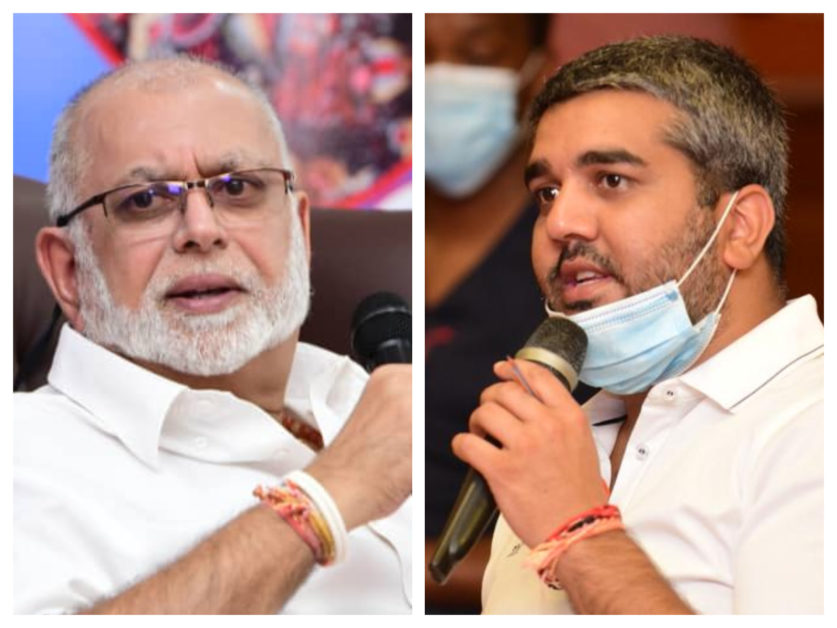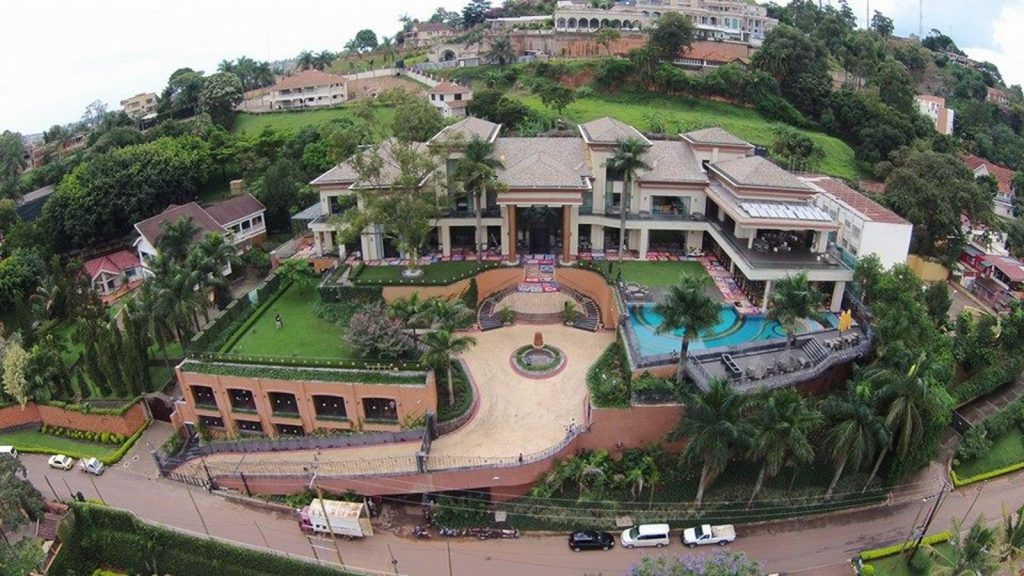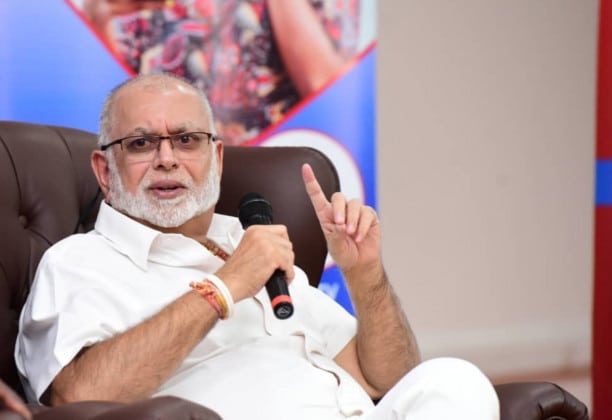Dr Sudhir Ruparelia is arguably Uganda’s richest man and one of East Africa’s wealthiest businessmen. His Ruparelia Group, comprising of over 28 companies, has tentacles in real estate, financial services, education services, hospitality, horticulture, media/broadcasting and most recently, labour externalization.
Form being a 17-year old student, he suddenly found himself on London streets looking for a job, after President Idi Amin had expelled Ugandans of Asian origin in 1972. After failing to join the UK’s Royal Armed Force’s he did several jobs, including being a supermarket attendant, to being a cab driver as he juggled his studies until he finished High School.
In 1985, he returned to Uganda armed with about $25,000 in savings and since then, he has never looked back. Through a series of greenfield investments, acquisitions, joint ventures and expansions he, with the support of family, has grown the Ruparelia Group into a well over $1.1 billion conglomerate.
In a recent extensive interview with www.billionairetomorrow.com’s Chris Bishop, Dr Ruparelia gave a series of advice on how to build a billion-dollar empire from almost nothing. We revisited the interview to pick on several pieces of wisdom from one of the most prolific businessmen of our times.
RESILIENCE AMIDST TROUBLED WATERS
First of all, when you have your vision of doing things in life, don’t give up. You may not succeed first, second or third time, but continue with it. But create a vision that you can achieve. Don’t create a vision, which is unachievable. And secondly, in my opinion, create and get into a line of business or entrepreneurship, which you enjoy doing. Every day, when you wake up in the morning, you will want to go to your office.
WHETHER TO INVEST IN UGANDA/AFRICA?
Right now, Africa has more opportunities. Take Uganda for instance. A lot of oil has been discovered. We are just waiting for a final investment decision between the government and the oil companies. Once they sign, they’re going to invest around $15 billion into Uganda. This is a very huge opportunity. I feel that Uganda and other African countries have a huge opportunity.
Western markets are saturated; many players are doing the same thing. If you have a good vision; new ideas and you bring them to Africa, you have higher chances of making them into reality, far better than the rest of the world. Africa, as you know, has got a population of 1.4 billion people, probably, growing by some 3%. Most of the resources are available in Africa and the growth opportunities are phenomenal.
Africa is a growing economy with a largemiddle-class segment, with disposable income, is well exposed and travelled with high expectations. You need to create things that meet these high expectations. In Africa, we still are behind the rest of the world. So there is time and space to introduce and catch up with new ideas here.
FINDING FULFILLMENT IN YOUR WORK
Don’t be in a business because your friend is successful. You need to notice what you like- are you a people’s person, are you an IT specialist; whatever you are, you must enjoy doing what you are doing and then focus on how you can expand on that to make a living out of it.
THE ART OF NEGOTIATING A DEAL
When going for a deal, I think you need confidence in yourself. And the second thing is you must know the line of business you are going into, how it will work and how you will implement it. You know, people talk about feasibility studies and all that. Honestly, in Africa, I feel that, if you have a vision for something you create it first, and then you create demand for what you have created. A lot of times people go to the banks and they are told to make a feasibility study. 99 out of 100 times in Africa other than in established economies like South Africa that does not work.
WHAT IS SUCCESS ANYWAY?
This is how I define success. My success is when I see that I started a project, I created employment for people and at the same time, the people who are using my establishments are also making money from it. That is my success. People who are with you must make money. You should not make money alone.

HOW TO INVEST USD10,000
If I had USD10,000 at the moment, I would first let the Covid-19 thing settle before I invest in a new venture. But Covid-19 challenges have also created some failed businesses, that can be picked up on the cheap, nourished and then make money. But this is the time to go in— then the economy is down, but soon it is going to come up and you make some money.
MANAGING STRESS IN BUSINESS
I think, in your life, stress is part of your daily routine. But I don’t let the stress overcome me. You know, in Africa, you can’t structure your management, like you do in established countries like the UK or America where you can plan and anticipate things. In Africa, we sometimes have what you call management by crisis. So in the morning, when you wake up, you have a crisis, you firefight this, and after the fire goes, then you get to your office and you deal with your emails and, and then in the afternoon, you plan for your expansion.
HOW TO SPOT AND MITIGATE RISK IN NEW INVESTMENTS
First of all, like every other businessman, I work out my rate of return on my investment. And if I don’t get a certain amount of return on my investment, then I will not touch it. I look for another opportunity. So every business that we would look into, is to say will I get 18% return on investment or 20% or 25% and then I work out what is a juicy deal for me and we work on that. I sit with my daughter and my son and they know exactly how to work those things out with me. And then they prepare the project and the final figures and I look through them because I’ve trained them to do so. And they know exactly what my expectations are and the company’s expectation.
ON HIS PEOPLE MANAGEMENT STYLE
One of the most important lessons is to pick up the right people, the right management structure- get the right people with you. You can’t always be 100% right, but you need to get the right people and the right team to work with you. Once you identify them, you mould them. Give them the authority, the leeway, and they should know what your expectations are.
TOUGH TIMES NEVER LAST: TOUGH PEOPLE DO
In business and life, you will end up in a bad situation but don’t give up. On your way up, build enough relationships and networks. It is usually those people who will pull you up and put you back on the road. There’s a very famous American joke about someone trying to join an insurance company, as a salesman. One of the things that they teach them is: Please knock on the door 1-2-3-4-5-6-7-8-9-10 times. Even if they say no to you. They may not buy, but every time they think of buying insurance, who do they think of? Of course, the guy who’s been knocking on the door. Or maybe, on the 11th time you knock on the door, it will be opened. So, don’t give up.
ON MANAGING PARTNERSHIPS
I have been very lucky that I’ve had extremely very few partners, and I don’t believe in partnerships. I would rather employ a professional, or somebody good at what he’s doing and pay him well, to manage. That is my way of doing things. Partnerships can start very well but when the cash starts coming in, then the stronger partner wants to then dominate and get rid of the other one. So you know, it all ends up not in a good way. Where you can manage yourself, grow up to that level, then you should look at equity funding or something like that to support your next growth.
ON RAISING CAPITAL AND BANK FINANCING
In whatever you want to create, raise a certain amount of capital yourself. I find it very sceptical that, if your business depends on a bank loan from the start, I think there are 95% chances in Africa that you will fail because the cost of borrowing is extremely high and the tenure of the loans you get is very short term. It’s not like in Europe, where you can get a loan for 20-25 years at 2-3 per cent. Here, in Africa, you have to pay a very high premium for getting loans.

DO NOT BORROW TO INVEST IN YOUR FIRST PROPERTY INVESTMENTS
You know, properties are the safest form of investment in Africa. However, it is also one of the most dangerous business to be in, if you borrow money to develop properties. When the market becomes stagnant, you are stuck with a huge deficit in cash flow- negative cash flow, and your bank loans are running. So in the beginning, try and get into real estate, in a way you can sustain and manage. And then when you create three or four properties, and you have income from three or four different sources from within the property sector, then you go and get a fifth property where you are assured of the continuity, of being able to repay the loans, then that is safe. But if you are in another business where you’re trying to get cash flow and borrow money for real estate, I think it’s a bit risky in this part of the world where the financial sector is not, you know, competitive.
RAISING CAPITAL FOR STARTUPS
Well, I think the simplest way is to you know, first get a job and then have some pieces on the side. You need to create your own and save your own cash as your basic minimum capital. And always look for a business that will give you a positive cash flow. And that is something that only you can do. Do not rely on one job or one sector. Two or three different sectors, you know, because if something is slow, in one sector, you’re always getting something from the other sectors.
THE IMPORTANCE OF LIQUIDITY AND CASHFLOW IN INVESTMENTS
When investing, I am not so much into the value of assets- although I always know it. My most important thing is, how much do I get out of this business? To me what’s more important is the cash flow, than what the building is worth, because the building can be worth $20-30-40 million, but then I’m not going to sell it. My interest is how much income I’ll get from the building. That is more important to me and our group than the present value of the building.
MANAGING RISK DURING EXPANSION AND AVOIDING OVER-EXPANSION
Avoid moving very quickly, outside your means. Allow some form of organic growth. So long as you have a good amount of cash flow coming in, you need to first focus on projects which you can fund. Avoid borrowing. I do not borrow/ I want to sleep at night, I don’t want unnecessary stress. So I think, try and grow according to the cash flow you have and are creating. It is probably the best option. Because, truth be said, opportunities come all the time, especially when you have good cash flow. Take those opportunities.
KEEPING TOGETHER SEVERAL COMPANIES AND KEEPING AN EYE ON THE PURSE
Well, I think in any business, the nerve centre is your accounts department. We have created structures where you know you have the management side, and you have the accounts side. So we make sure that the accounts side are independent of the management and they report directly to us, the directors. The cash flow is managed by me, my son and my daughter. We know our priorities and we don’t divert money to the wrong sector. So if any new opportunity comes, we sit together and decide where to put our cash.
INDUCTING CHILDREN INTO FAMILY BUSINESS
One of the things that I would always encourage parents to do, is that when your children are young, take them to your place of work. Even it means giving them plain paper and they do drawings while there. Get them to your building sites and get them to understand what you do. Don’t try to force them to learn or do the things you do, but lead them and mould them but let them choose if they really want to follow in your footsteps. Don’t put them under pressure. If you put conditions, they will rebel against the idea of authority. But once you mould them and you grow them into your line of business without, you know, putting pressure on them, it is easier for the succession.
ON RETIREMENT AND LIFE AFTER RETIREMENT
You know, I’m only 65 years of age and I still feel a lot of energy in me. I don’t think people like me would ever retire in the sense that I will go to the garage and do my hobbies. I don’t think I’m meant for that. I will be around. In life, what I like to do is also travel a lot. Once we get to a level where I am confident that the next succession or the successors will tow my way of thinking, then I will try and every six weeks travel for a few weeks and see the world. But for people like me and so many others in this world, if you give up, you become a cabbage and I don’t think I meant for that.
HOW HE WOULD LIKE TO BE REMEMBERED
Well, I just want people to say, I know Sudhir is a good man, a man of his word. And I think, to me, that’s the biggest consolation I can get from people. That’s what I want.
Credit: CEO East Africa Magazine
If you would like your article/opinion to be published on Uganda’s most authoritative news platform, send your submission on: [email protected]. You can also follow DailyExpress on WhatsApp and on Twitter (X) for realtime updates.



